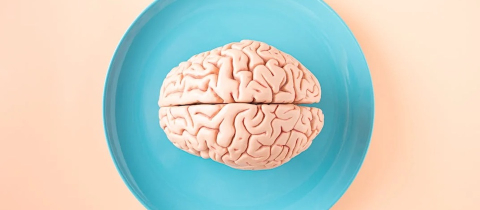Over the past couple of years, there’s been a lot of buzz about ashwagandha. This herb, estimated to have an annual market value of $42 million USD is available in health food stores and on Amazon, can be added to your smoothie, and is trending on TikTok. There are claims that ashwagandha can improve control of blood glucose, increase energy levels and testosterone while reducing anxiety, stress, fatigue, menopausal symptoms, joint pain, and tumour growth. No randomized, controlled, double-blind trials support these claims, but the herb is generally well tolerated, with occasional reports of drowsiness and stomach discomfort. Why, then, did Denmark recently ban ashwagandha? Is this traditional medicine so dangerous that it requires a ban? Or is Denmark being overly cautious by banning an effective natural medicine?
What is ashwagandha?
Ashwagandha, known by the botanical name Withania somnifera, is a woody shrub found in India, the Middle East, and other dry and warm regions. Ashwagandha is one of the most important plants in Ayurvedic medicine, a traditional Indian medical system that originated over 3,000 years ago. Ayurvedic medicine uses a combination of herbal remedies, diet, and lifestyle to treat people’s ailments “holistically.” In many Western countries today, ashwagandha is mainly used by health food gurus as a supplement to support overall health and athletic performance. The Food and Drug Administration in the US classifies it as a “botanical dietary supplement”, which means that the quality of ashwagandha products is not monitored to the same standard as FDA-approved medications or treatments. Nonetheless, a diverse body of clinical research has investigated ashwagandha’s many properties.
One of the most intriguing hypotheses about ashwagandha is its ability to help humans adapt to stress – this is why the naturopathic community calls it an “adaptogen”. A recent article found that most human clinical trials show that supplementing with ashwagandha reduces symptoms of stress and anxiety. Researchers believe that ashwagandha accomplishes this by acting on the hypothalamus-pituitary-adrenal (HPA) axis. The hypothalamus and pituitary gland are located at the base of our brain, and the adrenal glands are located on top of our kidneys. These three glands communicate with each other to regulate hormones, or key signalling chemicals, in our bodies. When our bodies sense a threat or stressor, the hypothalamus acts as a command center and starts a cascade of steps to initiate a stress response. Have you ever gotten sweaty palms, a trembling voice, or found it hard to focus when nervous? The hypothalamus is in charge of sending the signals to cause these reactions!
The hypothalamus sends a chemical called corticotropin-releasing factor (CRF) to the pituitary gland through a specialized network of blood vessels. CRF causes the pituitary gland to release adrenocorticotrophin hormone (ACTH) that then travels from the brain all the way down to the adrenal gland, causing it to produce cortisol. Cortisol is often called the ‘stress hormone’ because blood levels increase when taking a test, thinking about taxes, or performing in front of a crowd.
The hypothesis is that ashwagandha decreases cortisol levels, possibly by targeting one of the HPA axis's components, thereby reducing the effects of stress. The quality of clinical trials supporting this hypothesis is variable. Trials may use small groups of subjects or lack randomization of participants to control and experimental groups. Looking at only the anti-stress effects of ashwagandha, it’s hard to understand why Denmark would ban this supplement. However, when some of the side effects of ashwagandha are considered, it is easier to rationalize Denmark’s decision.
Why did Denmark ban ashwagandha?
In April 2023, Denmark banned ashwagandha, stating that it is impossible to find a safe dose given the current data. The ban was based on a finding in 2020 by the Danish Technical University (DTU) that ashwagandha has a possibly harmful effect on thyroid and sex hormones and, shockingly, that the herb may induce abortions. A close examination of the report reveals no presentation of any new data but only a summary of past scientific experiments. One study in rodents found that ashwagandha reduced sperm quality and quantity, while a trial in humans found that ashwagandha might increase thyroid hormones. If thyroid hormones increase too much, it can lead to a rare condition called thyrotoxicosis, which can cause delirium, heart failure, and dehydration. While these side effects are frightening, the report does not present a clear case for ashwagandha’s effect on hormones and fertility. The cases mentioned by the authors are rare, and many studies are included in which no evidence of thyroid problems was found.
As far as abortion is concerned, the report presents no clinical evidence of ashwagandha as an abortifacient. Reference is made to the World Health Association’s advice that people should not consume ashwagandha during pregnancy or breastfeeding because “there is information that the root has been used as an abortifacient.” The origin of this information is unclear, but it was likely passed down as part of the Ayurvedic medical system. On the other hand, some journal articles state that ashwagandha is safe to use during pregnancy and was even used to boost health pre- and post-birth. Without clear evidence, Demark took the most cautious option and ban ashwagandha altogether.
So, should I be concerned about ashwagandha?
Whether or not consumers should follow Denmark’s ban is unclear. The concerns brought up by the DTU’s report are significant but not backed by significant clinical evidence – especially the claims about ashwagandha inducing abortions. The European Medicines Agency and FDA, two of the largest pharmaceutical regulating agencies, are yet to follow in Denmark’s footsteps by restricting or prohibiting ashwagandha. While this doesn’t necessarily mean that Denmark is wrong about the potential side effects of ashwagandha, it does mean that the clinical data is limited enough that big pharmaceutical government agencies are not considering it.
If you are thinking of using ashwagandha, talk to your physician first. The herb’s ability to raise testosterone levels is a concern for men with prostate problems. And if you are pregnant or breastfeeding, it is best to be cautious and avoid using ashwagandha.
Maya McKeown recently graduated from McGill University with a Bachelors of Science (BSc) in Neuroscience and a minor in Mathematics.







